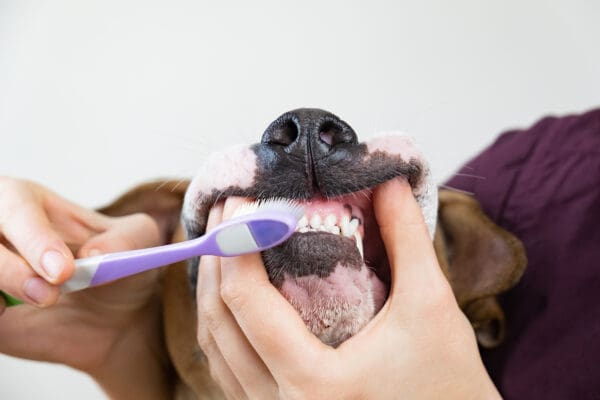
11401 NE 195th St. Bothell, WA 98011
(425) 486-9000 PHONE (425) 486-9002 fax
History
The domestic rat is descended from the Norway rats, Rattus norvegicus. They have been selectively bred for decades for a variety of traits, such as different colors, patterns, and friendly personality. Rats are generally active, affectionate, inquisitive pets. With proper care, they can reach up to 4 years of age, though 2.5-3 years is a more typical life span. While they are naturally nocturnal animals, many rats will adjust to your schedule and be out and about during the day.
Caging and Substrate
Rats enjoy spacious housing, and will spend much of their time exploring and playing. Large cages with multiple levels and solid plastic flooring are ideal. The cage should be kept out of drafts in an area of the house that does not get above 80°F, as rats do best at normal room temperature (70°F). The cage should contain 1-2 inches of soft, loose bedding for digging in, such as CareFresh, Yesterday’s News, or hay. The bedding should be changed entirely at least once a week, and spot cleaned daily. Wood shavings and corn cob beddings should be avoided, as their aromatic nature can cause significant irritation to your rats sinuses and airways, and splinters can lead to injuries.
Rats should be provided with a few hiding places where they can sleep undisturbed. Hammocks and other hanging beds are highly valued. Many toys are available for rats, and are useful for providing your pet with environmental enrichment. It is important to provide wood sticks for your rat to chew on in order to keep their incisor teeth healthy lengths.
Diet
The basis of a good rat diet is a high quality pelleted feed. Oxbow’s Regal Rat brand is an excellent pellet choice that we recommend for your pet. In addition, rats can be given limited amounts of fresh fruits and vegetables, as well as grains and the occasional starch such as pasta or rice.
Commercial mixes with seeds and nuts should be avoided, as the rats will pick out only their favorite items and not actually receive a complete and balanced diet.
High sugar/salt/fat food items should be avoided, as they can contribute to significant health problems, including heart disease and obesity.
Fresh water should also be available to your rat at all times. A hanging bottle on the side of the cage is easiest to keep clean. The water should be replaced daily, and the bottle should be run through the dish washer weekly. Check the bottle daily to make sure the ball stopper hasn’t gotten stuck in the opening – a stuck ball will prevent the rat from being able to drink.
Socialization
Rats are very social animals. They need companionship and social interaction, and we recommend keeping a pair of rats. Same sex groups will do well if they are raised together. Inter-sex groups should only be together if one or more of them has been spayed or neutered to prevent unwanted breeding. Different species of small animals should never be kept together, however. Rats enjoy interactions with people, and regular play time is recommended to keep them happy and active.
Common Medical issues
Rats, like most small exotic pets, are a prey species. They will always do their best to hide any signs of illness as a way to keep predators from knowing that they are vulnerable. The slightest change in your rats’ normal behavior or routine could be important, so be sure to call your veterinarian if you suspect anything abnormal.
- Respiratory disease – sniffles, sneezes and coughs could all be signs that your rat is developing a respiratory condition. If you notice any of these signs, or any discharge from your rats’ nose or eyes, please call your veterinarian right away.
- Tumors – tumors of various kinds are very common in older rats. Many of them are treatable if caught early enough. Uterine tumors in females and mammary tumors in both sexes are among the most frequently seen. Having your rat spayed or neutered will greatly reduce the chances of them developing these cancers later in life. Spaying or neutering will be beneficial at any age, but is best done before 4 months for best results.
- Obesity and Heart Disease – Rats are prone to weight problems. which can also contribute to heart disease, as in humans. Good diet, plenty of space to exercise in, and companions to exercise with will help keep them in good shape and reduce the risk.
- Parasites – Rats can have a number of parasites, both internal and on their skin and fur. Some of these are capable of being transmitted to humans, in particular the rat tape worm Hymenolepis and some species of mites. Your rat should have a fecal exam performed yearly for intestinal parasites, and should be checked out by your veterinarian if you notice any hair loss or itching and scratching.
March 30, 2015
Content of this Care Sheet Courtesy of:
The Center for Bird and Exotic Animal Medicine
11401 NE 195th St. Bothell, WA 98011
(425) 486-9000 PHONE (425) 486-9002 fax



